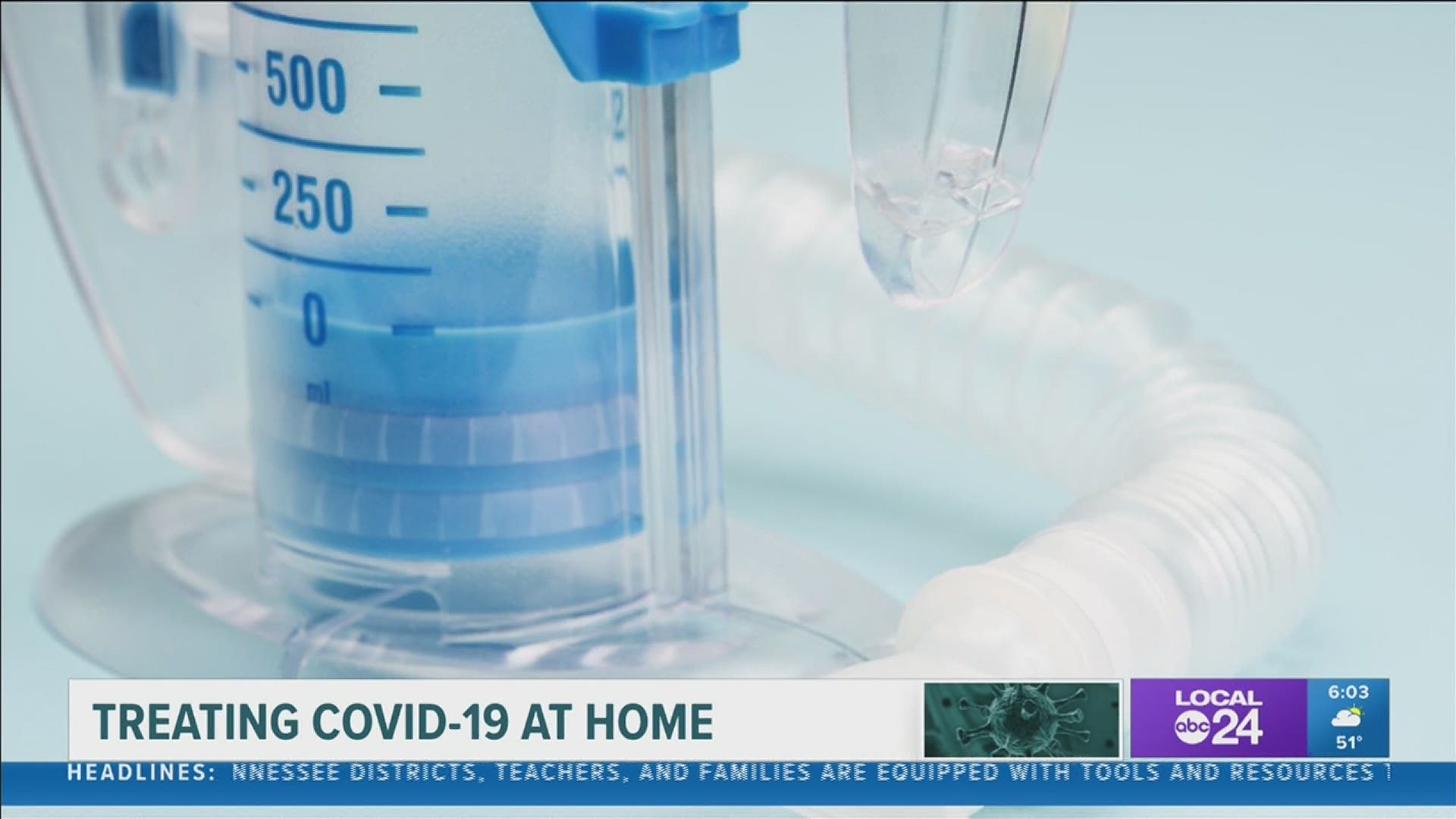MEMPHIS, Tenn. — If you catch COVID-19, there are some things you can do to help fight off the virus and hopefully prevent symptoms from getting worse.
"I ran a fever for 7 days," said Bartlett resident Dale Franklin.
Franklin just recovered from case of COVID-19. He said one of the tools that helped him while sick was a spirometer. A spirometer is an over-the-counter medical device that can help you improve lung capacity.
"It's got a gauge on it that tells you where you should be and what your capacity is," said Franklin. "You're just going to inhale and hold that bubble as long as you can."
Infectious Disease Specialist Dr. Stephen Threlkeld said a spirometer or similar device is helpful, but not required.
"You can do it without going out and purchasing a spirometer, if you don't have access to one, by simply taking a few deep breaths every hour or so," said Dr. Threlkeld.
Threlkeld said the goal is to avoid lung complications. You should focus on deep breathing several times a day. He added if you have COVID-19, keep moving as much as possible to keep fluids from pooling and to prevent blood clots.
"Try and stay as reasonably active as you can. Don't take to bed and lie down in bed all day," said Threlkeld.
Avoid laying on your back. Threlkeld said lying on your stomach is a better option. Also, stay Hydrated, eat healthy food.
And while there has been a lot of talk about supplements, especially vitamins C,D, and zinc, Threlkeld said, "There is no evidence that being on substantial supplements makes you any better off during coronavirus. There just aren't any studies that show that's the case."
But he added taking a multivitamin is a good idea for overall nutrition.
Getting an oxygen saturation monitor is a good idea according to Threlkeld. And he said if your oxygen levels drop too low, call your doctor or go to a hospital.
In addition to things you should do to help you get through the virus, there are also things you should not do.
Threlkeld said taking an antibiotic won't help you with a virus, and taking a steroid, if not medically needed, could impede your body's ability to fight the virus.
Luckily, Franklin's family all survived COVID-19.
"Everybody in the house is good," said Franklin.
Medical experts said the most critical period is 7 to 10 days from the onset of symptoms. If you pass that time and are doing ok, you'll probably be alright.
"The majority of the people who get COVID-19 will not have to go to the hospital and they will end up doing ok, but they may feel bad for some time," said Threlkeld.

